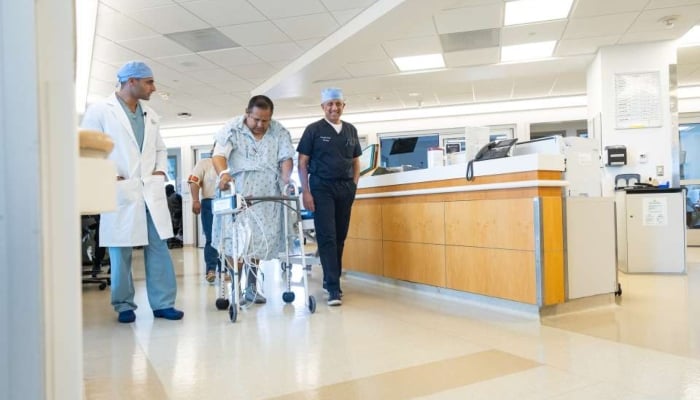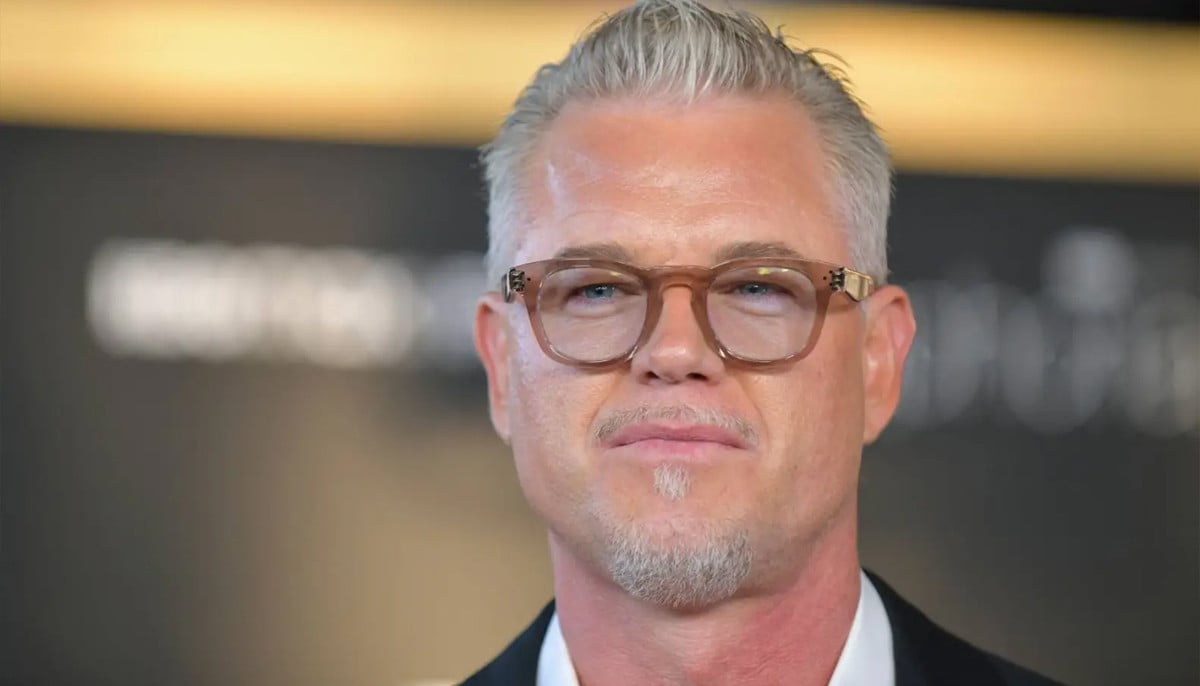World’s first bladder transplant carried out in US hospital
Landmark surgery took place on May 4 and offers new hope for patients suffering from severe bladder conditions
WASHINGTON: Surgeons at the Ronald Reagan UCLA Medical Center in Los Angeles have successfully carried out the world’s first human bladder transplant, according to hospital officials.
The landmark surgery took place on May 4 and offers new hope for patients suffering from severe bladder conditions.
According to a statement released Sunday by the University of California, Los Angeles, the recipient was 41-year-old Oscar Larrainzar, a father of four who had previously lost a significant portion of his bladder to cancer.
Larrainzar later had both of his kidneys removed due to cancer and end-stage kidney disease and was on dialysis for seven years.
He received both a bladder and a kidney from an organ donor and had them successfully transplanted in an eight-hour operation.
"The surgeons first transplanted the kidney, followed by the bladder; they then connected the kidney to the new bladder using the technique they had pioneered," the UCLA statement said.
Dr Nima Nassiri, one of the surgeons involved in the historic transplant, said the procedure yielded positive results almost instantaneously.
"The kidney immediately made a large volume of urine, and the patient's kidney function improved immediately," Nassiri said.
"There was no need for any dialysis after surgery, and the urine drained properly into the new bladder."
Nassiri and fellow surgeon Inderbir Gill said full bladder transplants had not been performed previously due to the complex vascular structure of the pelvis, making it a technically difficult procedure.
"This first attempt at bladder transplantation has been over four years in the making," Nassiri said.
Previously, patients in need of bladder reconstruction could have one artificially created using a part of the intestines or have a stoma bag inserted to collect urine.
Those techniques had several short-term and long-term risks that doctors hope will be circumvented with the full bladder transplant, Nassiri said.
-
Jelly Roll explains living with 'severe depression'
-
Charli XCX reveals ‘confusing’ toll ‘Brat’ popularity took on her
-
Margot Robbie opens up about imposter syndrome ‘crisis’
-
Hailey Bieber reveals how having ovarian cysts is 'never fun'
-
Sir Elton John details struggle with loss of vision: 'I can't see'
-
What we know about Chris Cornell's final hours
-
5 famous celebrities who beat cancer
-
Oprah Winfrey talks about weight-loss 'tool to manage' health












